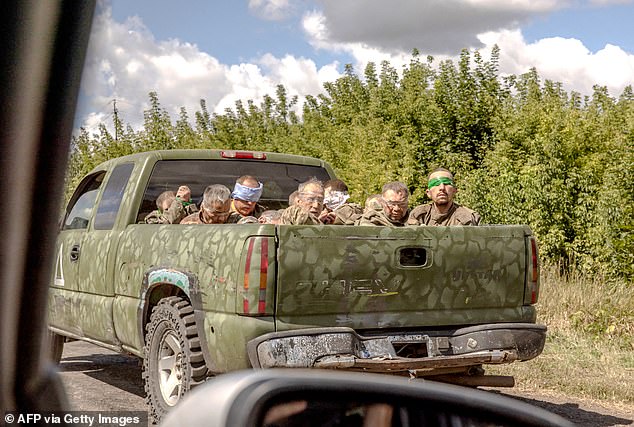In recent weeks, kyiv has signaled that it is open to peace talks with Moscow, not to give up but to reach an honorable agreement that preserves the country’s independence and regains as much ground as possible.
Ukrainian Foreign Minister Dymtro Kuleba even met with allies of Russian President Vladimir Putin in Beijing to sound out whether China would act as a go-between.
If Putin interpreted his counterpart Vladimir Zelensky’s willingness to engage in dialogue as a sign that his resolve to fight was weakening, he surely suffered the biggest shock of his presidency in the early hours of August 6.
A week ago, an elite Ukrainian unit stormed the border and its forces have since seized some 400 square miles of Russian territory in the Kursk region.
It seems that the Ukrainians have adopted the great Soviet art of “maskirovka” – deception in war – and have taught Putin a lesson in overconfidence.
Even kyiv’s allies were taken by surprise. However, given the presence of NATO advisers and technicians helping the Ukrainians deploy Western weapons (including F-16 fighters, French and British cruise missiles and German armored vehicles), some must have noticed the preparations for the sudden offensive, but kept quiet.
Russian soldiers are photographed in the back of a pickup truck after being captured by Ukrainian forces
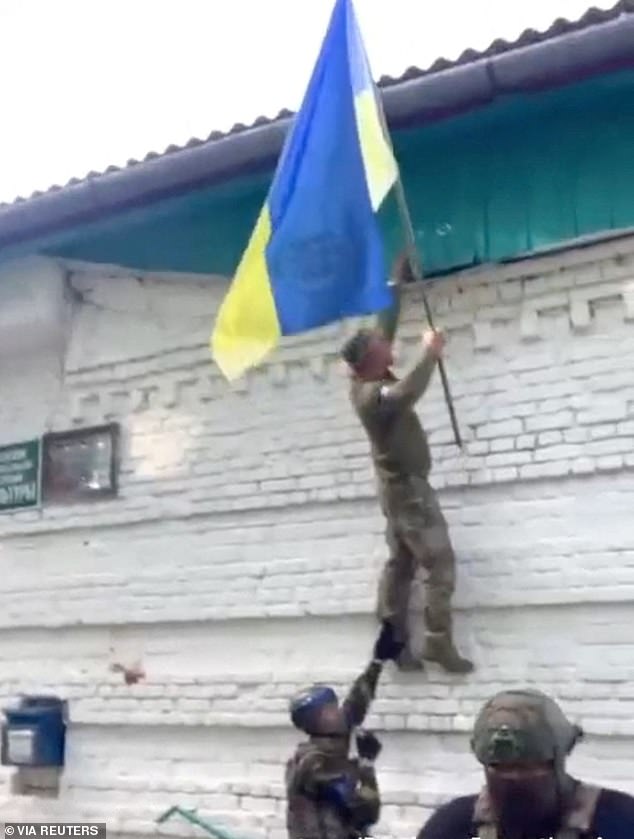
An elite Ukrainian unit has stormed its border with Russia and seized 400 square miles in the Kursk region, adopting the great Soviet art of ‘maskirovka’ – deception in war – and apparently teaching Putin a lesson in overconfidence.
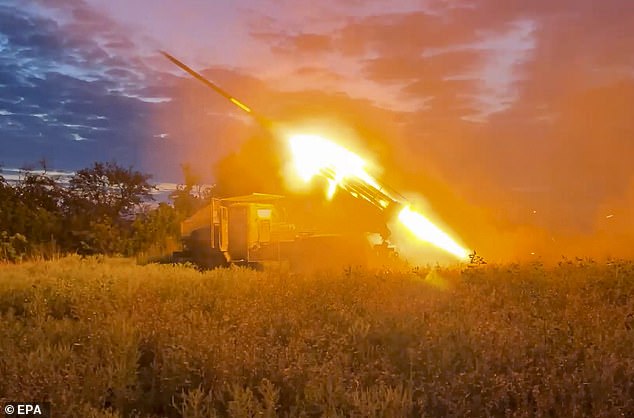
A missile is fired as fighting takes place in Soledar, Donetsk region, Ukraine
The West is acting cautiously, mindful of the cost the war is taking on its taxpayers. Its leaders are glad to see Putin embarrassed by the surprise attack on Ukraine, but have kept triumphalist rhetoric to a minimum, for fear of burning bridges with the Kremlin if it initiates ceasefire talks.
With its successful invasion, Ukraine has gained much more leverage for such negotiations. Zelensky now has the basis to negotiate Russian territory not only in exchange for peace, but also for the return of areas of Donbass invaded by the enemy.
Seen from this perspective, this act of aggression is not an escalation of the war, but a sign that a negotiated solution is approaching.
Zelensky will be tempted to press on. With the new American F-16s at his disposal, Russian targets in the Black Sea will be vulnerable.
Possible propaganda coups such as bombing Putin’s summer palace near Sochi on the coast or even strategic achievements such as destroying the bridge linking Russia to Crimea could be options, but they could also backfire, because they could infuriate Putin so much that any prospect of a peace deal would vanish.
The important thing is that being good at war doesn’t just mean fighting well.
As the famous Prussian general and military theorist Carl von Clausewitz argued after fighting with the Russian army against Napoleon in 1812, the ultimate purpose of war is to achieve a political goal.
Call it victory, call it peace, but political and military leaders have to keep their eyes on the grand prize of achieving that ultimate goal, rather than simply scoring tactical victories on the battlefield. The choice of the Kursk region to invade was symbolic, given the emotional resonance the region has for Russians.
In 1943, on the same terrain, the heroic Red Army defeated the retreating Nazis in the largest tank battle ever seen, involving some 6,000 tanks and two million soldiers. The Battle of Kursk became a decisive turning point in Hitler’s defeat in the east.

Masked Russian prisoners lay in piles on the ground after their capture in the Kursk region
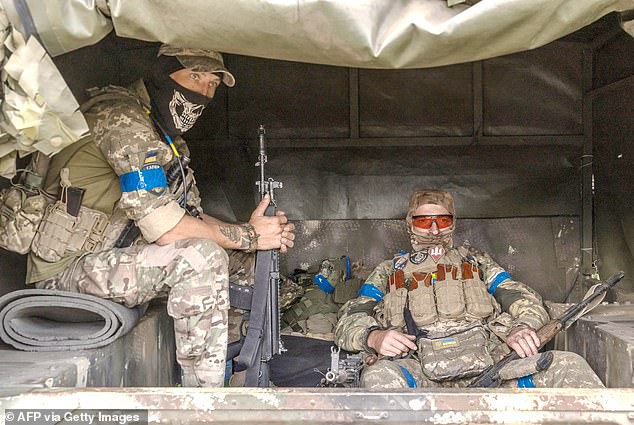
Armed Ukrainian soldiers sit in the back of a truck heading towards the conflict in the Sumy region, near the border with Russia.
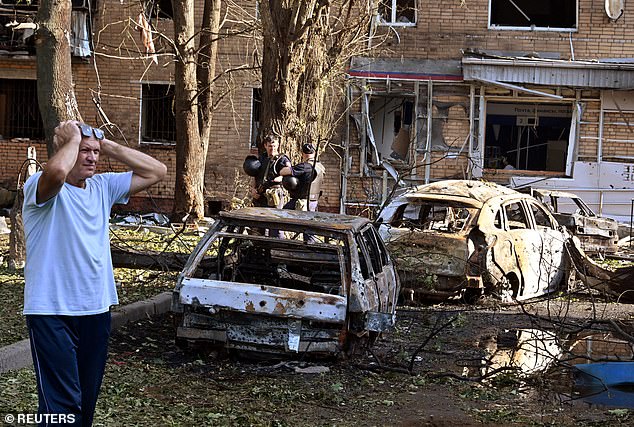
A man reacts to the destruction in the courtyard of a residential building, which local authorities say was hit by debris from a Ukrainian missile destroyed in its Kursk offensive.
The ill-fated submarine that bears his name has also left its mark on the Russian psyche. In August 2000, just eight months after Putin won the presidency, the nuclear submarine K-141 Kursk sank in the Barents Sea, taking with it all 118 people on board.
The Kursk invasion, in particular, the first foreign incursion into Russia since World War II, will have shaken Putin. That war ended in total victory, but this one will end in a muddled compromise.
Diplomacy is an unseemly business best kept secret from an apprehensive public, as Germany’s greatest diplomat, Bismarck, noted when he said: “Never ask how sausages are made or how politics is conducted.”
Much can go wrong, even in behind-the-scenes diplomacy. Trust is in short supply, to put it mildly. But there is now a glimmer of a chance that Ukraine can retain its essential territory and rebuild its society and economy.
At the same time, Putin can declare victory and sell his people – tired of wars and sanctions – a compromise that abandons their old demands. And world attention could then turn to the horrors of Gaza and perhaps worse ones to come in the Middle East.
Mark Almond is director of the Oxford Crisis Research Institute.


